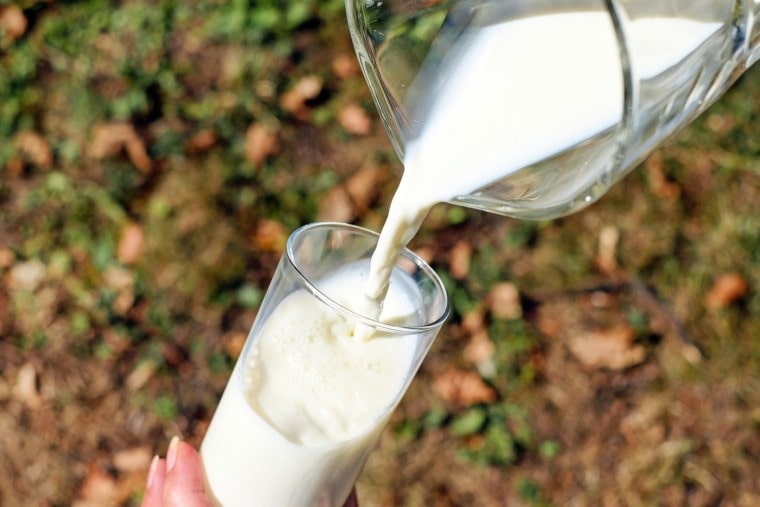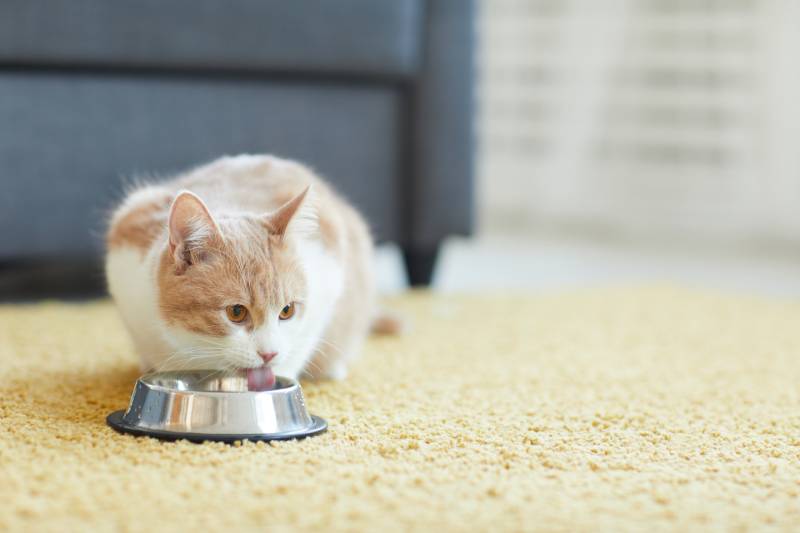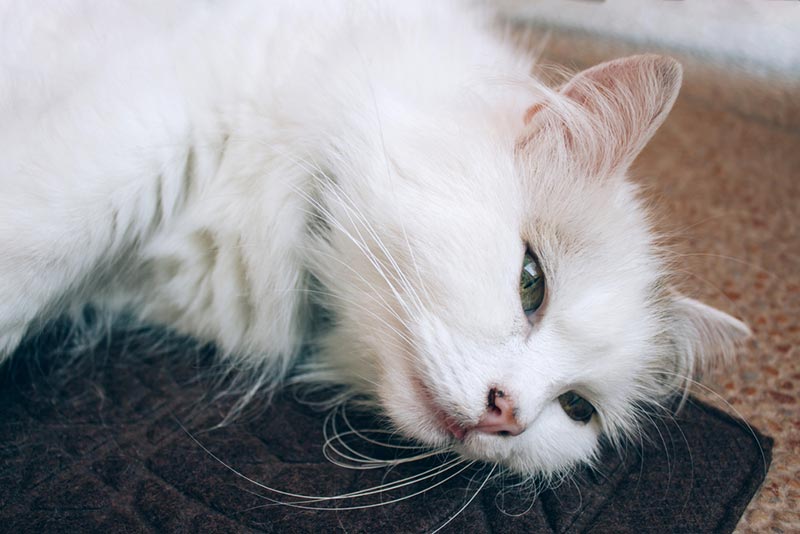
Click to Skip Ahead
It’s the classic dish from days of old – giving your cat a saucer of warm milk. While this was a prevalent practice throughout certain parts of history, this is actually quite harmful to felines. Contrary to cats being offered – and even wanting – milk, it is very hard and sometimes impossible for their bodies to break it down properly.
So the answer is yes, most cats are lactose intolerant, and no cats should ever drink or eat dairy products.
Cats Are Lactose Intolerant
It might surprise you to learn that most cats are lactose intolerant. After all, it is a widespread and well-known fact that cats enjoy a small bowl of warm milk. Even though humans may have given cats small portions of milk for decades, it’s a behavior that needs to stop.
The only time your cat needs milk in their diet is when they are nursing from their mothers. So, despite how much they beg for a lick of milk from here to there, it’s best to keep it out of the food dish.
Once a kitten is finished weaning, the capability of digesting any sort of milk either partially or fully leaves the body, creating lactose intolerance. That is because their bodies don’t require this type of sustenance to survive any longer.
Therefore, cats generally have a bad reaction when lactose is introduced to the body after this stage.

How Does Lactose Intolerance Work?
If a creature is lactose intolerant, it means that its body cannot break down the lactose that enters the system. All bodies that can digest lactose use an enzyme called lactase. Two sugars in lactose are glucose and galactose, which are absorbed into the bloodstream.
Since cats do not produce lactase, the substance stays in their digestive system. It passes through the gut and ferments inside of the intestines. This can lead to a whirlwind of problems that can be painful and uncomfortable for your cat.
Milk Allergy vs. Intolerance
You might think lactose intolerance is a one size fits all. However, there is a difference between a milk allergy and milk intolerance.
An intolerance affects the digestive system, while an allergy affects the immune system in your cat. Here is a comparison of each problem and what signs each can cause. Keep in mind that a lactose allergy is a veterinary emergency, just like any other allergic reaction.

Giving Your Cats Milk
It’s just in your cat’s best interest for them not to have any dairy products. These types of foods do not nourish your cat’s system even though they might be very drawn to them. Milk has a very high-fat content which can lead to obesity and eventually more advanced health issues.
If this is something you’ve been doing for quite a while, it’s not too late to stop. In fact, if you run it past your veterinarian, they will likely recommend that you cease giving them milk immediately so their bodies can recover.

Can Cats Have Lactose-Free Milk?
Because lactose intolerance is the primary issue with felines drinking milk, you might wonder if they can have lactose-free milk instead.
While this is a better option because it causes less irritation with the gut, it is still not the best choice for your kitty. Most lactose-free milks are plant-based. The reality is that cats are designed to eat animal-based meats, not anything plant-based. So although lactose-free milk won’t cause your cat as many problems, it is still not really very good for them and can cause digestive upset.
Knowing exactly what your feline companion can and cannot eat will help you become the best pet parent. Recognizing that not all cat bowls are equal is also key! The Hepper NomNom Cat Bowl sets itself apart from traditional options by catering to the specific needs of cats. The innovative design offers whisker relief via shallow dishes and promotes digestion with a slight bowl elevation. Find out if the Hepper NomNom is right for your cat by clicking here.
At Pet Keen, we’ve admired Hepper for many years and decided to take a controlling ownership interest so that we could benefit from the outstanding designs of this cool cat company!
If You Found a Nursing Kitten
If you’ve found a nursing kitten, you might find it intuitive to give them milk as a replacement for their mother’s sustenance. However, kittens cannot break down cow’s milk, and it can actually cause great harm if you try to supplement their diet.
Instead, you should purchase a kitten milk replacement. You can get kitten milk replacement in places like pet shops, online pet stores, and even certain department stores. Some even choose to make their own kitten formula at home.
However, most vets recommend buying it commercially rather than making it yourself to ensure you match all the necessary nutrient profiles.
Before giving a kitten any supplement, always contact your veterinarian for guidance to ensure you’re helping rather than unintentionally hurting them.
Final Thoughts
Now you understand that after kittens reach the age of self-sufficiency, their bodies naturally lose the ability to digest lactose. So, if you have been giving your cats milk regularly, you will have to switch to something more digestible for them.
Even those cats that don’t completely lose their ability to digest lactose still have a hard time with it. Plus, milk is full of fat that your cat doesn’t need in their daily diet anyway, as it can lead to issues like obesity.
Featured Image Credit: Shelofast Hanna, Shutterstock








